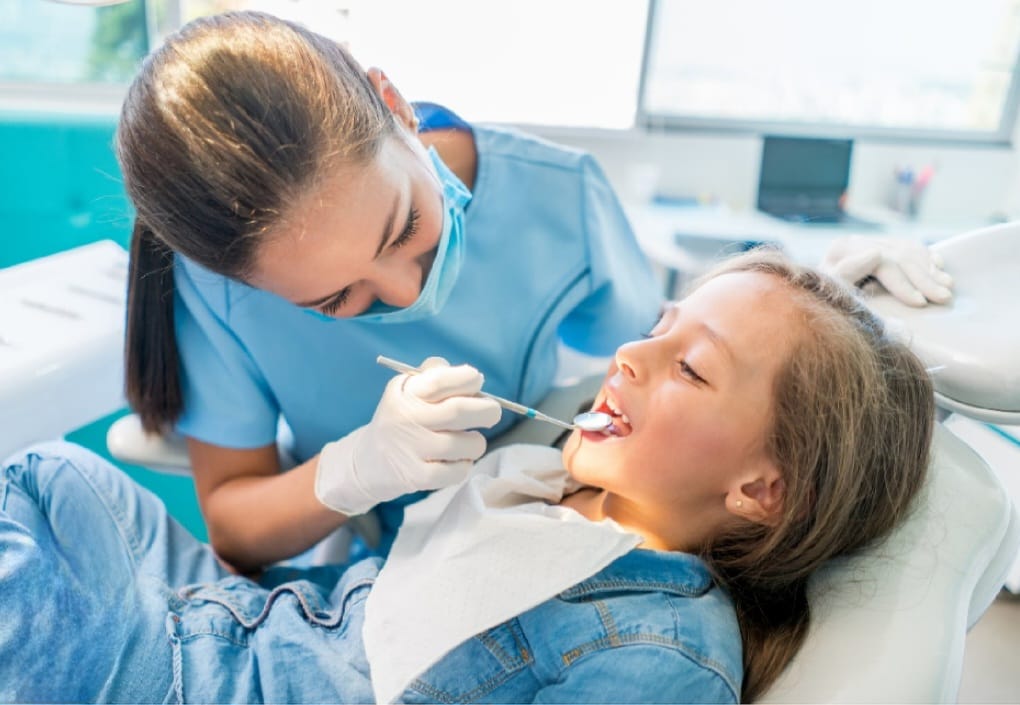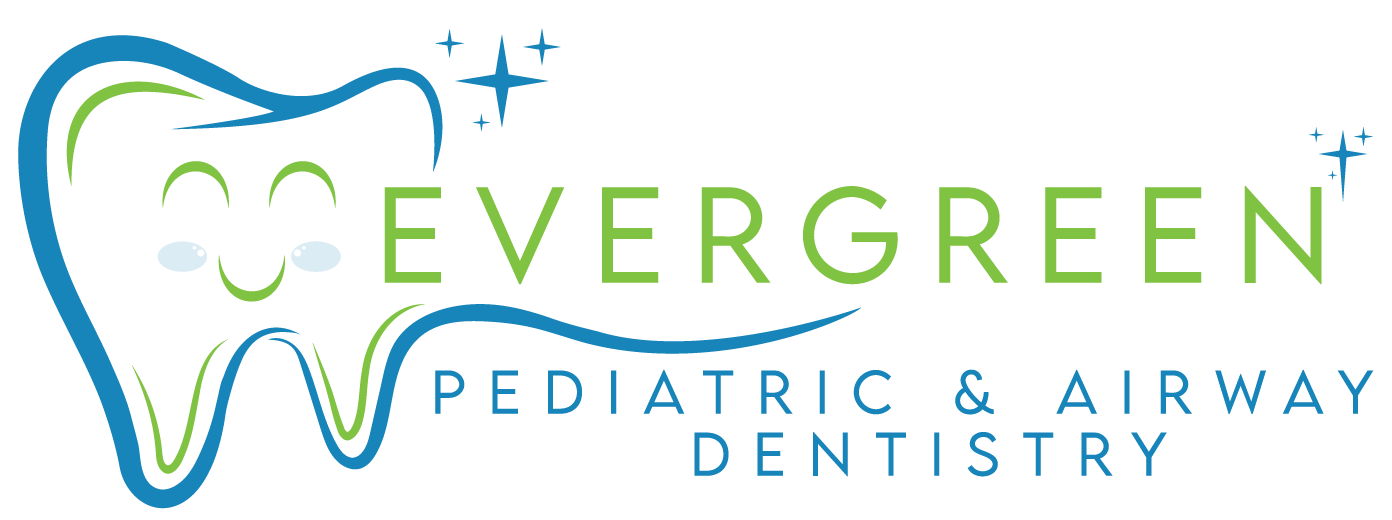Child Dental Abscess: From Pain to Prevention
Dental abscesses are a common occurrence in children, causing significant pain and discomfort. As parents, we want to protect our children from any harm or suffering, especially when it comes to their health. However, many of us are unaware of the dangers of dental abscesses and how they can be prevented. That’s why in this blog, we will be discussing everything you need to know about dental abscesses in children – from the causes and symptoms to the prevention and treatment methods. By the end of this blog, you’ll have a better understanding of how to keep your child’s teeth healthy and pain-free. So let’s dive into our journey from pain to prevention of child dental abscess.
The Basics of Dental Hygiene for Children
Good dental hygiene is essential for children’s overall health and well-being. Not only does it promote healthy teeth and gums, but it also helps prevent serious oral health issues in the future. Establishing good dental hygiene habits at a young age sets the foundation for a lifetime of strong and healthy teeth.
One of the most important aspects of dental hygiene for children is brushing their teeth twice a day. Regular brushing helps remove plaque and bacteria that can lead to tooth decay and gum disease. It’s important for parents to supervise their children’s brushing until they are old enough to properly brush on their own. Parents should also make sure their children are using an appropriate toothbrush and toothpaste for their age.
In addition to regular brushing, flossing is also an important part of dental hygiene for children. Flossing removes food particles and plaque from between teeth, which can’t be reached with a toothbrush. Children should begin flossing as soon as they have two teeth that touch each other. Parents may need to assist their children with flossing until they are old enough to do it on their own.
Another crucial aspect of dental hygiene for children is regular visit to the dentist. Starting at a young age, children should visit the dentist every six months for routine check-ups and cleanings. These appointments not only help maintain good oral health, but they also allow the dentist to catch any potential issues early on and prevent them from becoming more serious problems.
In addition to brushing, flossing, and regular dental visits, parents can also encourage good dental hygiene habits by limiting sugary and acidic foods and drinks in their children’s diets. They can also teach their children about the importance of proper nutrition for strong teeth and gums. By instilling these healthy habits at a young age, parents are setting their children up for a lifetime of good oral health.
Overall, the basics of dental hygiene for children include regular brushing and flossing, routine visits to the dentist, and a healthy diet. By prioritizing these habits and instilling them in children at a young age, parents can help their children maintain strong and healthy teeth for years to come. Good dental hygiene is an essential part of overall health and should not be overlooked or underestimated in its importance for children.

Diagnosing Dental Abscess in Children
Understanding Dental Abscesses in Children
Dental abscesses in children can cause great discomfort and pain, significantly impacting their daily activities like eating and speaking. It’s crucial for parents to understand what dental abscesses are, recognize the symptoms, and promptly seek treatment.
A dental abscess is a collection of pus that forms inside the teeth, gums, or bone due to bacterial infection. It can affect both primary (baby) and permanent teeth. Common symptoms include pain, swelling, redness around the affected area, difficulty swallowing, fever, and bad breath.
If left untreated, dental abscesses can lead to serious complications, including the spread of infection, damage to permanent teeth, and problems with jaw growth. Treatment usually involves draining the pus and administering antibiotics. In some cases, a root canal or extraction may be necessary. If you suspect your child has a dental abscess, it’s essential to consult a dentist.
Prevention plays a key role in avoiding dental abscesses. Encourage good oral hygiene practices like regular brushing and flossing to prevent bacterial buildup. Scheduling regular dental check-ups can catch potential issues early. Additionally, limiting sugary foods and drinks helps prevent tooth decay, which can lead to abscesses. By understanding dental abscesses and taking preventative measures, parents can ensure their children’s smiles remain healthy and pain-free.
It’s important to teach children about the significance of oral hygiene and regular dental visits, setting them up for a lifetime of good oral health habits. By engaging in these practices, parents and children can maintain optimal oral health and prevent dental abscesses.
Signs and Symptoms of Dental Abscesses in Children
Dental abscesses can be a real pain, quite literally! So, it’s important for parents to be on the lookout for signs and symptoms. Here are some common indicators in children:
- Tooth Troubles: If your child complains of pain or sensitivity in a specific tooth, it could be a red flag.
- Swelling Sensation: Keep an eye out for any swelling around the affected area. It’s a telltale sign of trouble.
- Red and Tender Gums: Take note if your little one’s gums appear red and feel tender to the touch. It could be a sign of an abscess.
- Chewing Challenges: Does your child struggle while chewing or biting down on food? It might be due to an abscess, so pay attention.
- Fever and Fatigue: If your child seems unwell, with a fever and general malaise, it could be linked to a dental abscess.
- Bad Breath Blues: Foul-smelling breath that just won’t go away can also be a clue that something’s not right.
Remember, if your child shows any of these symptoms, seeking professional dental care is crucial. Early detection and prompt treatment can halt the infection’s spread and prevent potential complications. Stay vigilant and keep those smiles healthy!
The Dangers of Ignoring Dental Abscesses
Many parents underestimate the seriousness of dental abscesses and delay seeking treatment, but doing so can have severe consequences for a child’s oral health. Let’s explore why it’s crucial to address dental abscesses promptly:
- The infection can spread: If left untreated, a dental abscess can spread throughout the mouth and even enter the bloodstream, leading to potentially serious health issues.
- Permanent tooth damage: When a dental abscess affects a permanent tooth, it can cause long-term damage or even result in tooth loss. This may require extensive and costly treatments in the future.
- Difficulty eating and speaking: Dental abscesses can cause pain and swelling, making it challenging for children to eat and speak properly. This can have a negative impact on their nutrition and overall well-being.
- Impact on growth and development: Dental problems can affect the growth of a child’s jaw and facial structure. Delaying treatment for a dental abscess can potentially hinder a child’s overall growth and development.
- Increased risk of future dental issues: Ignoring a dental abscess can lead to more serious oral health problems down the line. Addressing issues promptly is crucial to prevent long-term consequences.
Parents must prioritize their child’s oral health and promptly address dental abscesses. By understanding what dental abscesses are, recognizing the symptoms, and seeking timely treatment, parents can ensure their children maintain healthy and strong teeth. Remember, prevention is always better than cure when it comes to dental abscesses, so encourage good oral hygiene practices and regular dental visits for your child’s well-being.
Taking care of dental abscesses is a vital part of overall oral health. By being proactive and seeking treatment promptly, parents can help their children avoid unnecessary pain and complications. Let’s prioritize our children’s oral health and give them the best chance at a bright smile.
The Importance of Early Treatment for Dental Abscesses
When it comes to dental abscesses in children, early treatment is absolutely crucial. Delaying or avoiding treatment can have serious consequences for their oral health and overall well-being. Let’s explore some reasons why early treatment is so important.
Firstly, early treatment prevents the spread of infection. Dental abscesses can quickly spread throughout the mouth and body if left untreated. By promptly treating the abscess, we can stop the infection from spreading and causing further harm.
Additionally, early treatment minimizes pain and discomfort. Dental abscesses can be incredibly painful, making it difficult for children to eat, speak, or even sleep. By seeking treatment early on, we can relieve symptoms and prevent unnecessary suffering for your child.
Furthermore, prompt treatment also saves permanent teeth. If a dental abscess affects a permanent tooth, it can cause long-term damage or even tooth loss. By acting quickly, we can save the affected tooth and preserve your child’s smile.
Not only does early treatment prevent immediate complications, but it also prevents future oral health issues from arising. By addressing dental abscesses early on, parents can avoid costly and extensive treatments that may be necessary if the infection is left to progress.
Moreover, seeking early treatment promotes good oral health habits. By taking action and seeking treatment for dental abscesses, parents can teach their children about the importance of taking care of their teeth and visiting the dentist regularly. This sets them up for a lifetime of good oral health habits.
Remember, don’t wait until it’s too late to treat dental abscesses in children. Seek professional dental care at the first sign of trouble and give your child the best chance at a healthy and pain-free smile. By emphasizing the importance of early treatment, parents can set their children up for a lifetime of good oral health habits.
With early treatment, we can ensure that your child’s dental health remains in great shape. Act now to provide the best care for your child’s oral well-being.

Dental Abscess Treatment
Treatment Options for Dental Abscess in Children
Don’t panic if your child has a dental abscess – dental professionals have various treatment options available to restore their oral health. Let’s explore some common methods used to treat dental abscesses in children.
- Antibiotics: In cases where the infection is localized, antibiotics may be prescribed to kill the bacteria causing the abscess. This is usually the first step in treatment and can help reduce pain and swelling.
- Drainage: If the abscess has formed a pus-filled pocket, draining it may be necessary to relieve pressure and promote healing. This procedure is typically done under local anesthesia in a dental office.
- Root Canal: If the abscess has affected the tooth’s pulp, a root canal may be required. This involves removing the infected tissue and filling the space with a special material to prevent further infection.
- Extraction: In severe cases where the tooth cannot be saved, extraction may be necessary. The affected tooth will be removed to prevent the spread of infection, and options for replacing it will be recommended.
- Oral Hygiene Education: Alongside treating the abscess, dental professionals may educate parents and children on proper oral hygiene practices to prevent future dental issues.
It’s important to remember that every child is different, and their treatment plan for a dental abscess may vary. Trust your dentist’s professional advice and follow their recommendations to ensure your child receives the best possible care.
By seeking timely treatment and following through with post-treatment care, you can help your child’s dental abscess heal properly and prevent future complications. Remember, maintaining good oral hygiene is key to preventing dental problems in the future.
Don’t worry if your child has a dental abscess – there are effective treatments available. Trust your dentist, follow their advice, and prioritize good oral hygiene to keep your child’s smile healthy and bright.
Prevention Tips for Dental Abscess in Children
While seeking early treatment for dental abscesses is crucial, it’s always better to prevent them from occurring in the first place. Here are some tips for preventing dental abscesses in children:
- Encourage good oral hygiene habits: Teach your child to brush their teeth twice a day and floss daily. Make sure they use fluoride toothpaste and show them how to brush properly.
- Limit sugary and acidic foods: These types of foods can contribute to tooth decay, which can lead to abscesses. Encourage a balanced and healthy diet for your child’s overall oral health.
- Regular dental visits: Make sure your child visits the dentist every six months for check-ups and cleanings. This allows dentists to catch any potential issues early on and prevent them from developing into abscesses.
- Address tooth decay promptly: If your child has a cavity, seek treatment as soon as possible to prevent it from progressing into an abscess. Early intervention can save their teeth and prevent further complications.
- Wear protective gear during sports: If your child plays contact sports, make sure they wear a mouthguard to prevent dental injuries that can lead to abscesses.
By following these prevention tips, parents can help keep their children’s teeth healthy and free from dental abscesses. Remember, prevention is always better than a cure. So prioritize good oral hygiene and encourage healthy habits in your child to promote long-term oral health. With proper care and attention, you can give your child a beautiful and pain-free smile for life.
In conclusion, dental abscesses in children can be a cause for concern, but with prompt treatment and prevention strategies, parents can ensure their child’s oral health remains in great shape. Seek professional help at the first sign of trouble, educate your child on good oral hygiene habits, and prioritize regular dental visits to prevent future complications. With proper care and attention, your child can have a healthy and pain-free smile for life. So don’t wait, take action now to give your child the best chance at optimal oral health. Remember, prevention is key!
Keep in mind that good oral hygiene habits should start early on and continue throughout life. As children grow into adults, they must continue to prioritize their oral health by visiting the dentist regularly, brushing and flossing daily, and maintaining a healthy diet. With consistent effort and proper care, anyone can have a beautiful and healthy smile for life. So let’s take care of our teeth and make sure to pass on these important habits to future generations. Remember, don’t wait until it’s too late – seek professional help for dental issues and prioritize prevention to keep your child’s smile bright and healthy. With a little effort, we can all have happy and healthy smiles! So let’s spread the word and encourage good oral hygiene practices for everyone. Together, we can achieve optimal oral health for generations to come. Keep smiling!
Evergreen Pediatric Dentistry
https://www.google.com/maps?cid=14720788683151219551
12910 Totem Lake Blvd NE #103, Kirkland, WA 98034, United States
(425) 814-3196
https://evergreenkidsdentist.com/


